The views expressed in our content reflect individual perspectives and do not represent the authoritative views of the Baha'i Faith.
Determined to make a difference, Dr. Helen Elsie Austin always faithfully pursued her goals and stood up for what was right despite the racism she experienced.
She said, “…if we go about it [transformation] with faith, with intelligent protest, standing up and demonstrating what the right attitude and motivation is for human progress, we can progress. After all, the battle we face is essentially a spiritual battle to transform the souls and spirits of human beings, to empower them to express love and justice, and to develop a unity of conscience.”
RELATED: Sadie Oglesby’s Message About Standing Up for Racial Justice
Learn about the trailblazing life and legacy of Dr. H. Elsie Austin, an inspiring African American Baha’i who lived a life of firsts in her career, educational pursuits, and service to humanity.
Dr. Helen Elsie Austin’s Family, Upbringing, and Education
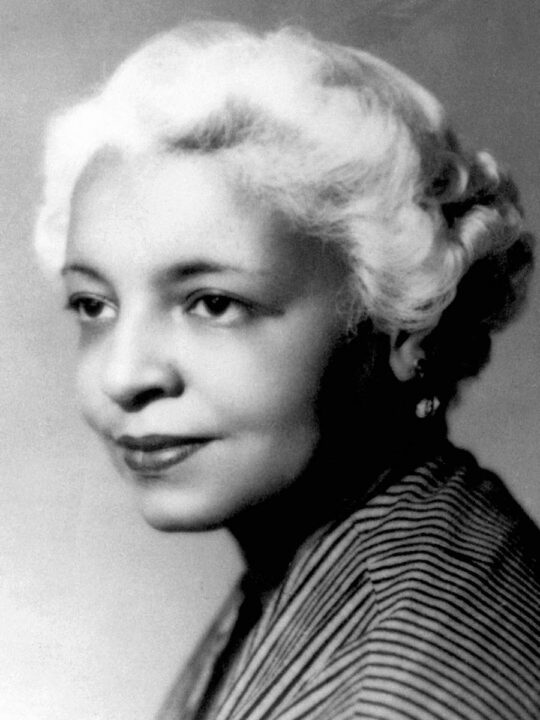
Elsie was born on May 10, 1908, in Tuskegee, Alabama to parents Mary and George Austin. Mary and George were both teachers and encouraged Elsie and her brother, George James Austin II, to pursue an education to help them further civil rights. Her family had a long tradition of passing down their stories of overcoming hardship from generation to generation.
Elsie especially drew inspiration and strength from the story of her maternal great-grandmother, Louisa Dotson. Although Louisa and her husband, Reverend Mentor Dotson, were both born into slavery, Mentor ran for election after he was freed and won a seat in the Alabama House of Representatives in 1872, which made him a target for the Ku Klux Klan.
“As the story goes, one night, when my great-grandmother Louisa was alone with just her children, the Klan came to her house [and] broke in the door,” recalled Elsie, as recorded in the Baha’is of the United States online memorial for her.
“Pointing guns at her, they demanded that she tell them where her husband was. She looked them in the eye. She said, ‘Just go ahead and kill me because I will never tell you where he is.’ After more curses and threats and shots, they decided not to kill her and left.”
Elsie was awed by her great-grandmother’s “determination not to give in to injustice and depression even at the risk of death.” She called Louisa Dotson to mind when she needed courage in racist and hostile environments.
Elsie’s parents later moved the family north to Cincinnati, Ohio, in pursuit of a better education for their children. Although the elementary school she went to was all-Black, her high school was predominantly white. On her first day of high school, the teacher read from a history textbook about all the contributions of every racial demographic, except Black people. The book erroneously stated that Black people were created to be subservient and had made no significant contributions to society.
RELATED: 9 African American Inventors Who Changed the World
Elsie recounted:
Two little Black girls in a school full of white children in a classroom full of white children, and with all the candor and cruelty of the young, the entire class looked at us, and there were, of course, a few snickers and grins. It was then that I remembered my grandmother. I felt as if the Klan was standing there with the guns trained on me.
With great resentment and resolve, I stood up and said, ’I was taught in a Black school that Africans worked iron before Europeans knew anything about it. I was taught that they knew how to cast bronze in making statues and that they worked in gold and in ivory so beautifully that the European nations came to their shores to buy their carvings and statues. That’s what I was taught in a Black school.’ There was an electrical silence.
But friends, can you imagine if there had been no protest, what ingrained prejudice and hostility would have been implanted in the minds of those children, and what humiliation and degradation would have been stamped upon us?
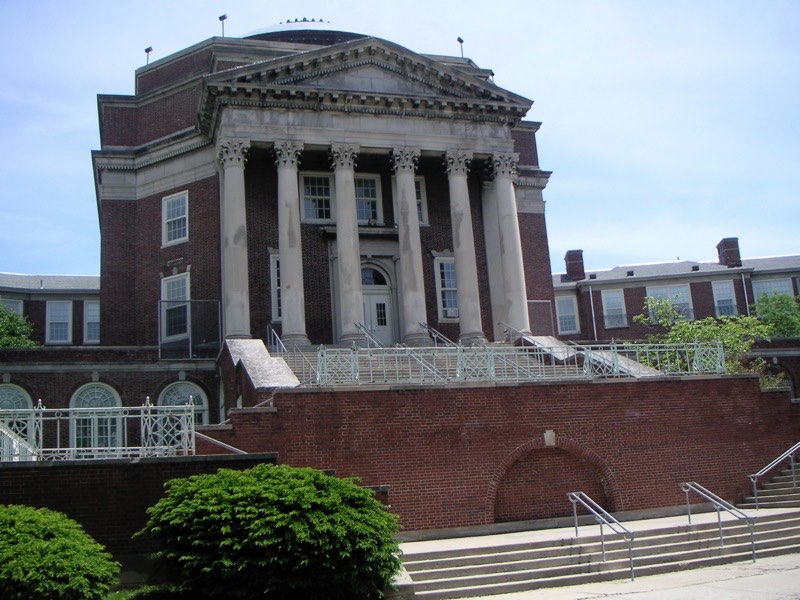
Elsie carried this strength and resolve with her, and was among the first group of Black students to integrate the University of Cincinnati in 1928. However, this first class of young Black students was not met with open arms.
In an interview with Gwendolyn Etter-Lewis and Richard Thomas for their book, “Lights of the Spirit: Historical Portraits of Black Baha’is in North America, 1898-2000,” Elsie said:
…All the [Black] girls were called into the dean’s office. And we were told that we should be as unobtrusive as possible on the campus. That we were members of the subject race, the university did not really want us, but as it was a city university it had to take us. And we left that university just about in a state of shock because we hadn’t been prepared for that chat. And we immediately met with the young [Black] men on campus and told them about it. And we all decided that we’re going out for everything. That everybody in that freshman class is gonna come away with some distinction.
…We just decided we were gonna show them. And we all did. Every member of that freshman class had some distinction. And the success of it was that the next year the same official who had spoken to us called us back and apologized. He said, ‘I made an error and I want you to know that you are a credit to your race.’
Not only did Elsie attain her undergraduate degree with honors, but she also became the first African American woman to graduate from the University of Cincinnati College of Law and later the first African American woman to serve as Assistant Attorney-General of the State of Ohio. She received an honorary doctorate in law from Wilberforce University for “outstanding service as the first colored woman to hold this post.”
Dr. Helen Elsie Austin’s Life as a Baha’i
Before Elsie learned about the Baha’i Faith, she had become bitter about religion after witnessing so much prejudice and division. She said:
I was young, angry, incensed, and hostile. I went to my father, and I said, ‘I’m going to become an agnostic or an atheist because I just don’t believe anymore in these religions that are all separate, all fighting with each other, all enforcing prejudice against some group, yet they say God is the father of all mankind.’
My father heard me out and then said, ‘Well before you do it, why don’t you go and talk to these Cincinnati people who are talking about the Baha’i Faith?’ He was not a Baha’i, but he said, ‘They have some very interesting views and maybe that will interest you.’
So, for two years, Elsie studied the Baha’i writings, attended classes and fireside chats about the Baha’i Faith, and met so many wonderful Baha’is, like Louis Gregory and Dorothy Baker, who helped her overcome her bitterness. In her essay, “Social Basis of World Unity,” she wrote, “The Baha’i Teachings not only destroy without equivocation the fallacies which have nourished social strife and disunity, but they provide new patterns of social living and development through which men learn brotherhood by performance.”
RELATED: Coralie Franklin Cook: A Famous Suffragist, Speaker, and Baha’i
Elsie became a Baha’i in 1934, excited to join their efforts in contributing to the betterment of the world. As the Baha’i writings say:
To be a Bahá’í simply means to love all the world; to love humanity and try to serve it; to work for universal peace and universal brotherhood.
Twelve years after Elsie became a Baha’i, she made history in the Baha’i community by becoming the first African American woman to be elected to the National Spiritual Assembly of the Baha’is of the United States in 1946.
Although Elsie was a successful attorney and had just gotten a raise and moved into a new apartment, she put her career on hold to pioneer in Africa in 1953 and share the revolutionary principles of the Baha’i Faith, including the eradication of all forms of prejudice, the elimination of the extremes of wealth and poverty, the equality of women and men, the agreement of science and religion, the truth and oneness of all religions, the independent investigation of truth, and the importance of a universal language and education.
The first country she pioneered in was Morocco. Although she was traveling alone as a single African American woman in a country where women had fewer rights than in the United States and had no contacts in Morocco, she relied upon God and felt the protection of Baha’u’llah, the prophet and founder of the Baha’i Faith. In an interview with Gwendolyn Etter-Lewis and Richard Thomas, she recalled, “Nobody assaulted me, nobody said unkind things to me, and from the very moment that I entered the country it seemed as if unseen hands and unseen power arranged contacts that were helpful, educational and very wonderful to me.”
Although she was an English speaker in an Arab and French-speaking country, she helped establish the first Baha’i community in Morocco and earned the title “Knight of Baha’u’llah” for introducing the Baha’i Faith to the country.
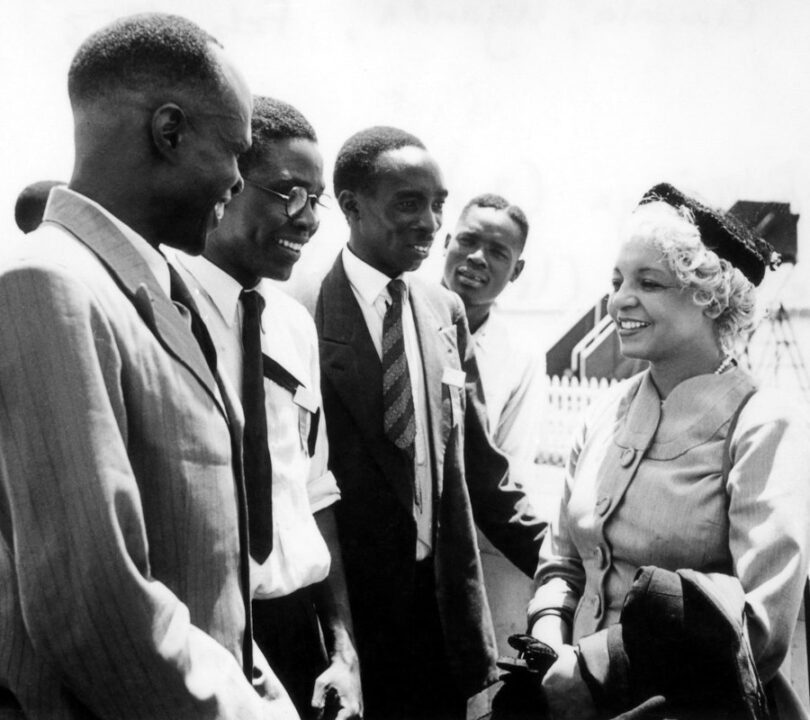
Elsie was also elected to the National Spiritual Assembly of North and West Africa from 1955 to 1958. Elsie became a Foreign Service Officer and pioneered in Nigeria, Kenya, and the Bahamas after Morocco. She spent ten years in Africa working with educational and cultural programs sponsored by the United States Information Agency and initiated the first USIA women’s programs in Africa. As a result of her efforts, the USIA nominated Elsie for the Federal Women’s Award and the University of Cincinnati awarded her with an honorary doctorate of humanities in 1969.
After she passed away at age 96 in October 2004, the Universal House of Justice, the globally elected governing council of the Baha’i Faith, shared that “the shining example of her sacrificial life will remain a source of inspiration to her fellow believers for generations to come.”
Let’s remember her inspiring example as we strive to persevere in the face of adversities and live a life of service to humanity.


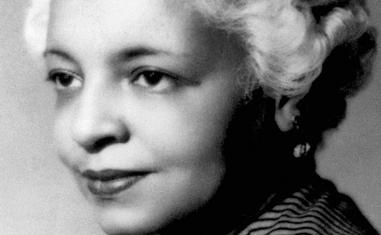

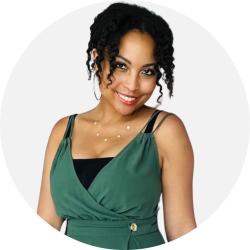

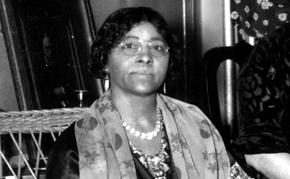
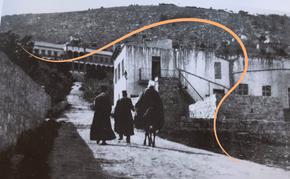









Comments
Sign in or create an account
Continue with Facebookor